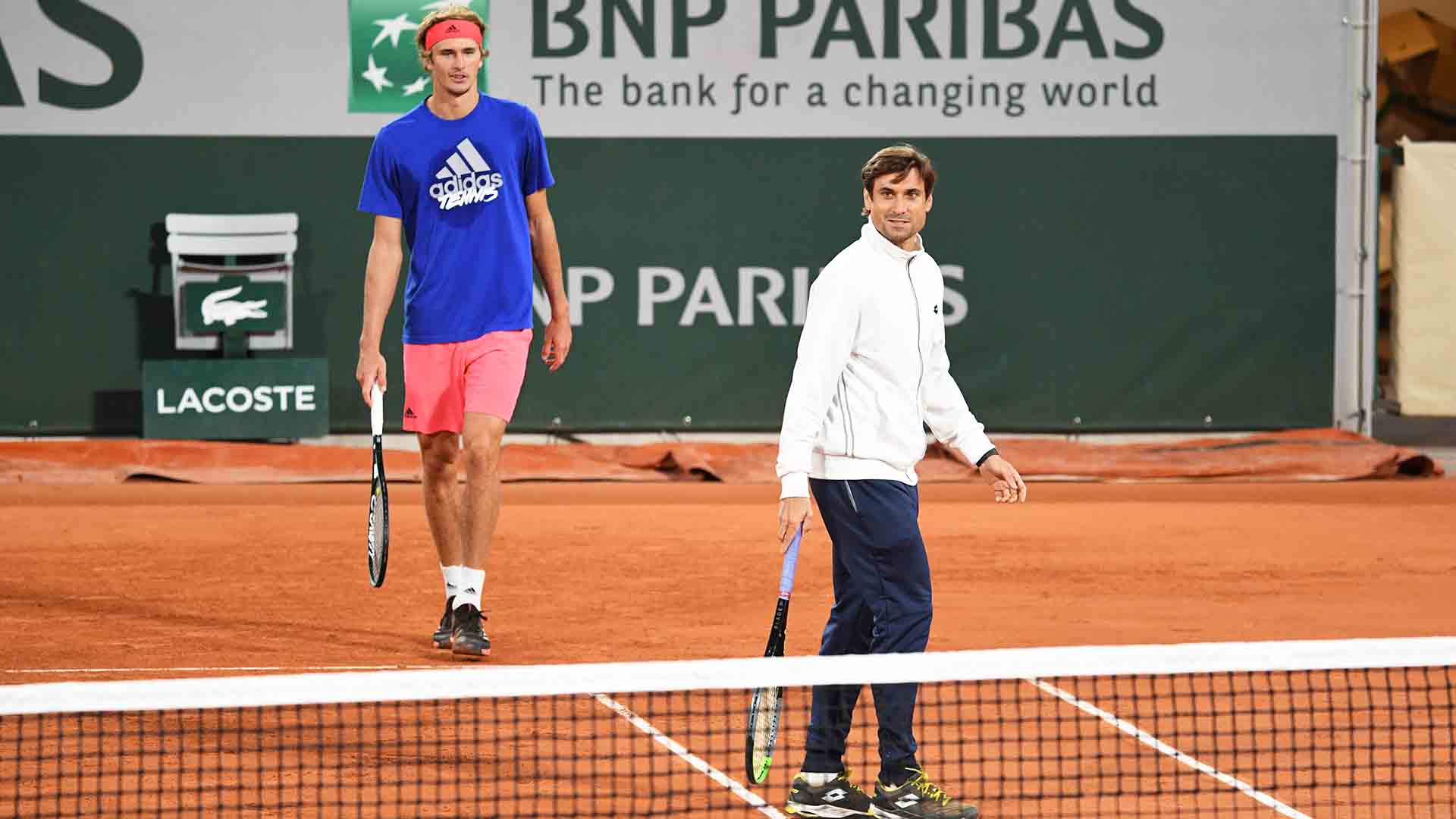Will Shapovalov, Felix Or Another #NextGenATP Star Make A Run In Paris?
Will Shapovalov, Felix Or Another #NextGenATP Star Make A Run In Paris?
Fourteen #NextGenATP stars will try to make their mark at Roland Garros in the coming fortnight. ATPTour.com looks at seven of those players before the clay-court Grand Slam begins.
Denis Shapovalov
Shapovalov is the hottest #NextGenATP player leading into Roland Garros. The lefty, who has excelled under the guidance of former Russian star Mikhail Youzhny, cracked the Top 10 of the FedEx ATP Rankings for the first time Monday. The ninth seed, who is fresh off a run to the quarter-finals of the US Open and the semi-finals of the Internazionali BNL d’Italia, will try to improve his 1-2 record at Roland Garros. Shapovalov plays French veteran Gilles Simon in the first round.
Felix Auger-Aliassime
The 19th seed is making his Roland Garros main draw debut. The Canadian reached last year’s Lyon final, but was unable to compete the following week in Paris due to a left adductor injury. Auger-Aliassime has shown great promise on clay, making his first big tour-level splash at the 2019 Rio Open presented by Claro, where he reached the final as the World No. 104. The 20-year-old faces Japanese lefty Yoshihito Nishioka in the first round.
Alex de Minaur
De Minaur, who like Shapovalov made his maiden major quarter-final at the US Open, will try to play his best clay-court tennis yet in Paris. The Aussie is 2-10 at tour-level on the surface, but he is widely recognised as one of the quickest players on Tour. In cooler, slower conditions, it will be incredibly difficult for players to hit through the 25th seed, who opens his run against 2018 semi-finalist Marco Cecchinato.
Jannik Sinner
When Roland Garros was played in 2019, Sinner was outside the Top 200 of the FedEx ATP Rankings. Now World No. 74, the reigning Next Gen ATP Finals champion is rapidly rising. The Italian faces a tough test in his Roland Garros debut against 11th seed David Goffin. However, not only did he win his only previous ATP Head2Head meeting against the Belgian, but he is fresh off a victory against Stefanos Tsitsipas in Rome.
Corentin Moutet
France’s top #NextGenATP hope Moutet is trying to back up strong Roland Garros performances from 2018 and 2019. The dynamic lefty, who is unafraid of the forecourt, reached the second round two years ago in Paris and the third round last year. The 21-year-old, who recently collaborated on a rap song with Shapovalov, plays Italian qualifier Lorenzo Giustino in the first round.
Alejandro Davidovich Fokina
Few players on the ATP Tour are as fond of the drop shot as Davidovich Fokina, and the Spaniard will certainly use it on the slow Roland Garros clay. The Spaniard, who is at a career-high World No. 69, won three matches to qualify in Rome and also reached the fourth round of the US Open. Davidovich Fokina opens against fellow #NextGenATP player Harold Mayot, a French wild card.
Miomir Kecmanovic
The Serbian is flying high after lifting his first ATP Tour trophy in Kitzbuhel. World No. 40 Kecmanovic has established himself inside the Top 50 of the FedEx ATP Rankings, and now he will try to cause an upset at Roland Garros against Rome finalist Diego Schwartzman, the 12th seed. Kecmanovic has made the second round at four of his past five majors, but he has never advanced further at a Grand Slam.
Did You Know?
The other seven #NextGenATP players competing at Roland Garros are Hugo Gaston, Sebastian Korda, Tomas Machac, Harold Mayot, Alexei Popyrin, Jurij Rodionov and Emil Ruusuvuori.


 In the men’s draw, there is one first round tie that clearly stands out. Stan Wawrinka and Andy Murray face off in Paris…
In the men’s draw, there is one first round tie that clearly stands out. Stan Wawrinka and Andy Murray face off in Paris… Tournament favourite Simona Halep begins her chase for a second Grand Slam title on Sunday, taking on Sara Sorribes Tormo…
Tournament favourite Simona Halep begins her chase for a second Grand Slam title on Sunday, taking on Sara Sorribes Tormo… Alexander Zverev looks to bounce back from the disappointment of his US Open final loss by going deep in Paris. The German…
Alexander Zverev looks to bounce back from the disappointment of his US Open final loss by going deep in Paris. The German… Daniil Medvedev headlines the second quarter of the Roland Garros draw alongside Stefanos Tsitsipas.” />
Daniil Medvedev headlines the second quarter of the Roland Garros draw alongside Stefanos Tsitsipas.” /> Alexander Zverev practises with new coach David Ferrer ahead of his fifth consecutive main draw appearance at Roland Garros.” />
Alexander Zverev practises with new coach David Ferrer ahead of his fifth consecutive main draw appearance at Roland Garros.” /> A reenergised Victoria Azarenka will hope to continue her great run of form in Paris against Danka Kovinic. The Belarusian…
A reenergised Victoria Azarenka will hope to continue her great run of form in Paris against Danka Kovinic. The Belarusian…